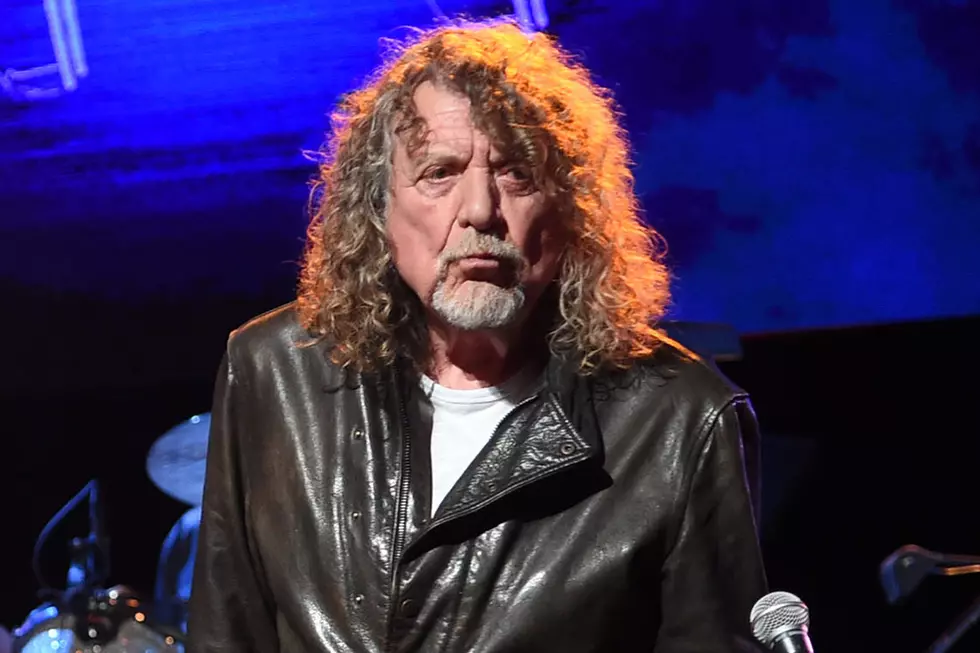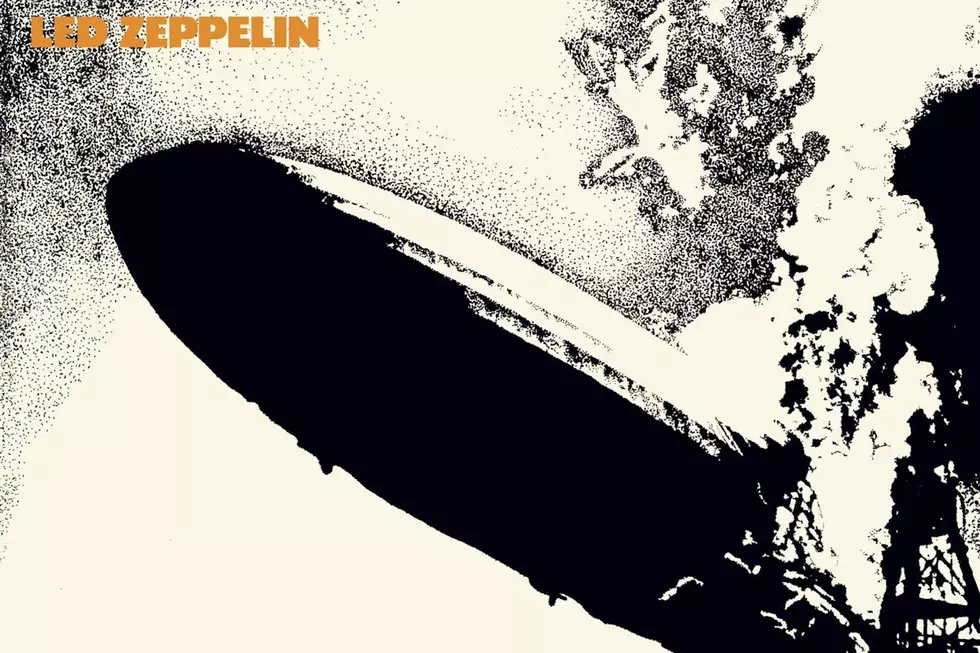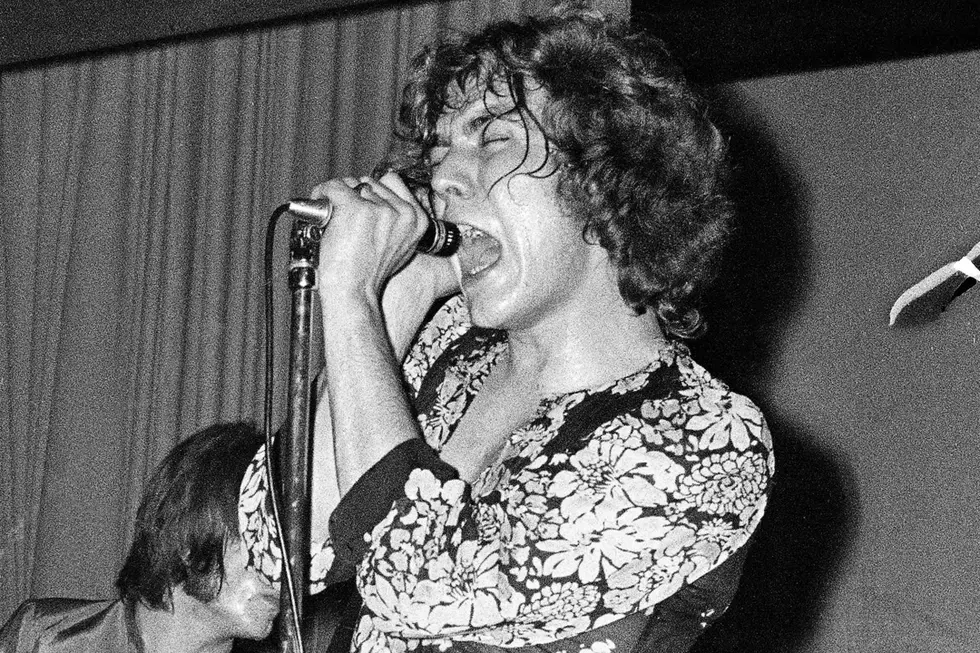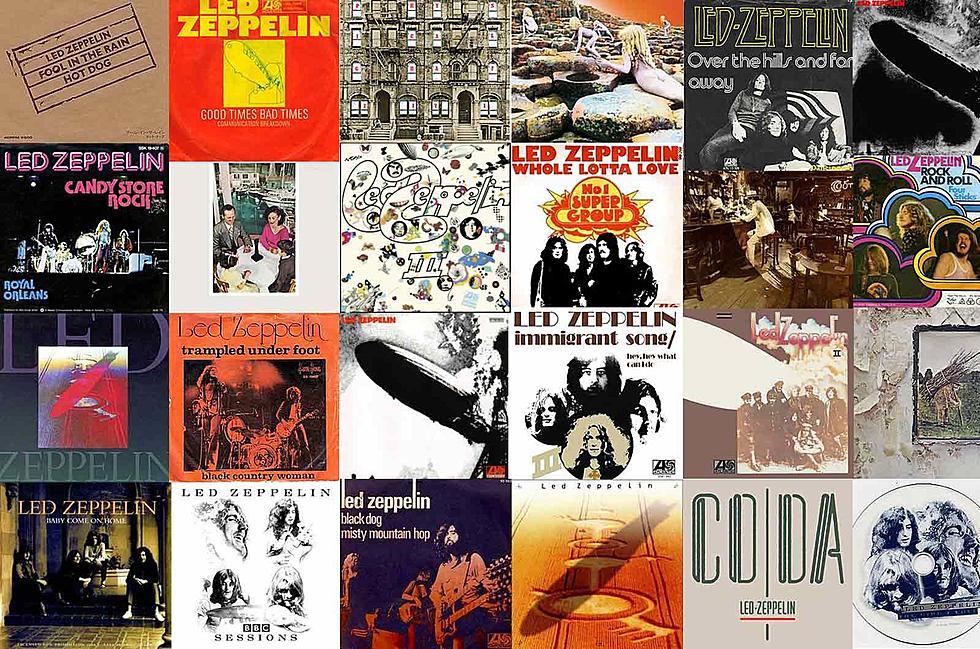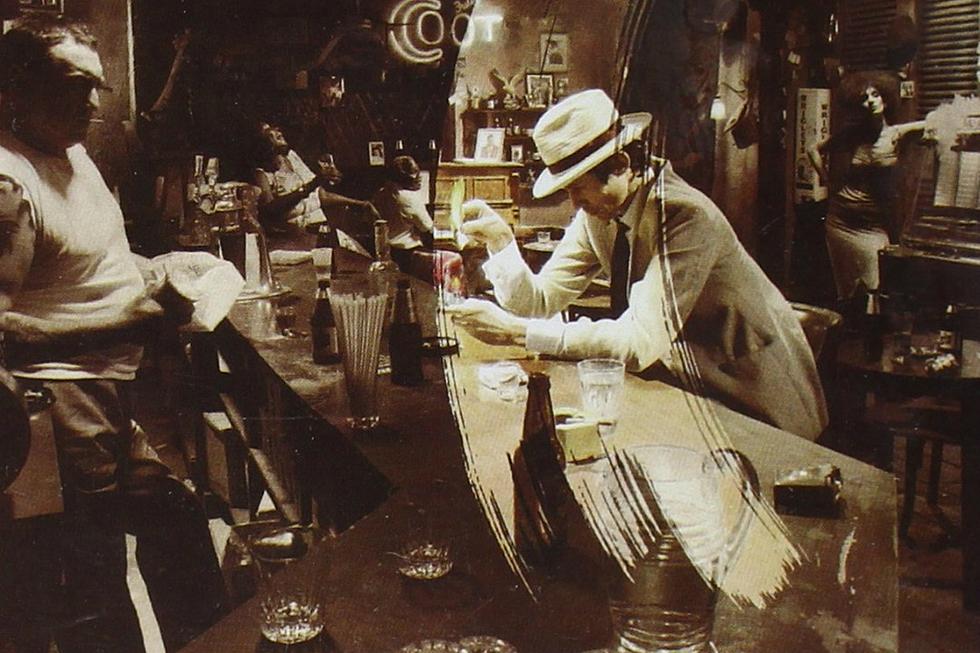
How Led Zeppelin Ended Things on ‘In Through the Out Door’
Fans grieved for singer Robert Plant when his young son Karac suddenly passed away in the summer of 1977, and held out hope through years of breakup rumors as his band went on hold while Plant dealt with his loss.
Led Zeppelin would eventually return in August 1979 with their eighth studio LP, In Through the Out Door, but the band's fate was far from certain even before the tragedy that prompted their hiatus.
"The 1977 tour ended because I lost my boy, but it had also ended before it ended, really," suggested Plant in Led Zeppelin: The Oral History of the World's Greatest Rock Band. "It was just a mess. Where was the actual axis of all this stuff? Who do I go to if it's really bad for me?"
Plant ultimately found the answer in his family, withdrawing for months while trying to figure out whether he wanted to continue making music in the wake of events that showed him just how transitory his fame and fortune really were. And as much as Led Zeppelin had always been a collection of distinct personalities, Plant emerged from this shattering experience a changed man – one who felt fewer ties to his bandmates than ever.
"I wasn't comfortable in the group at all," Plant admitted in a 2005 interview. "We'd gone right through the hoop and, because my hoop was on fire, I didn't know if it was worth it anymore. ... My joy of life had been cudgeled and bashed so hard, I became a time-and-motion man for my own destiny."
But after months of waiting, and one tentative stab at live performance in an awkward meeting arranged by manager Peter Grant, the band convened in late 1978 in Stockholm, booking several weeks at Polar Studios, the state-of-the-art recording facility owned by the members of ABBA. Good as it was to shift the band back into gear, Grant later admitted the sessions were less than ideal, describing the experience of recording at Polar as "a slog. ... It was cold and dark all the time."
As long as it had taken him to climb back on board, Plant seemed nothing less than committed to making a new album. "Maybe I waited too long," he's quoted as saying in road manager Richard Cole's book Stairway to Heaven: Led Zeppelin Uncensored. "But I just couldn't push myself. I had to let the enthusiasm come back on its own. I'm anxious to get going and see what happens."
Listen to Led Zeppelin's 'Fool in the Rain'
In fact, while Plant was present and accounted for – and living a drug-free lifestyle since Karac's death – other members of the band proved less reliable. As the songs that would ultimately make up In Through the Out Door started to take shape, it was difficult not to notice the conspicuous absence of guitarist Jimmy Page, who took a far less active hand in shaping the music than he had on previous Zeppelin efforts.
"It just seemed that Robert and I got to rehearsals first," explained multi-instrumentalist John Paul Jones in a 1991 interview with author Ritchie Yorke. "We were left alone quite a lot of the time, along with [drummer John Bonham], and so we tended to get on with it, I think. I suppose you could say that In Through the Out Door is my album, the way Presence was Jimmy's album."
In a separate interview, Jones recalled that "Robert and I were getting a bit closer – and probably splitting from the other two, in a way. We were always to be found over a pint somewhere, thinking, 'What are we doing?. And that went into In Through the Out Door. Basically, we wrote the album, just the two of us."
Plant agreed: "Jonesy and I, who had never really gravitated toward each other at all, started to get on well. It was odd, but it gave the whole thing a different feel: things like 'All My Love' and 'I'm Gonna Crawl.' We weren't going to make another 'Communication Breakdown,' but I thought 'In the Evening' was really good." Grant nodded, saying "John Paul Jones certainly did pick up the reins of the band with the In Through the Out Door album. People tended to think of him as a bass player, but he went far, far beyond that."
Jones' growing role did not go unnoticed. "I think Jimmy kind of thought Jonesy was trying to take over as producer, which he wasn't," Cole observed. "He was just making use of the time until the other two turned up. The truth of the matter was we never turned up until the middle of the night until we had scored. The other two got there when they were supposed to, and just messed around doing stuff."
Which is not to say that Page's hand wasn't felt in the final version of the album. In fact, he still ended up with the producer's credit, and mixed the record at his home studio – for better as well as worse. "I thought parts of 'Carouselambra' were good, especially the darker dirges that Pagey developed," Plant reflected in a 2003 interview with Mojo. "I rue it so much now, because the lyrics on 'Carouselambra' were actually about that environment and that situation. The whole story of Led Zeppelin in its latter years is in that song, and I can't hear the words."
Listen to Led Zeppelin's 'Carouselambra'
Regardless of how one feels about the album's original mix, Page insists he was overall in better shape than others have suggested. "In Through the Out Door was done in a little over three weeks, so I couldn't have been in that bad a shape," he argued in the same issue of Mojo. "I'd never have been able to play, and I wouldn't have been able to keep my head together to do this, that, and the other."
Once the sessions wrapped, the band had more than enough music to fill an LP; in addition to the seven songs that ultimately made the cut for In Through the Out Door, they emerged with three more ("Wearing and Tearing," "Ozone Baby," and "Darlene") that were held over for a future release. With the record in the can, Grant was faced with the task of proving Led Zeppelin were still on top, even after going more than three years without an album of new music – a job he faced with his customary blend of genius and gruff bravado.
For starters, there was the album's unusual artwork, which wrapped multiple LP covers in plain brown paper stamped with the band's name – an eye-catching display of market force that started as a joke. "Peter said to me, 'We could put the album in a brown paper bag, and it would fucking sell,'" recalled designer Aubrey Powell. "I said, 'Peter, what a great idea.' Atlantic didn't want the aggravation, but Peter said, 'We're fucking doin' it.' In Through the Out Door ended up having six different covers."
Even with the added aggravation for the label, the band ended up with a huge hit on its hands. In Through the Out Door debuted at No. 1 on both sides of the Atlantic, and while reviews were decidedly mixed, the pent-up demand from the fan base was obvious. Led Zeppelin had been missed – and what's more, they may even have missed each other while they were away. "There was something going on, and it was lifting again," mused Plant. "We decided that we could work, and we should start all over again."
While In Through the Out Door was still making its way to stores, Grant turned to the issue of touring, which had become something of a sore spot since Karac's passing. Stuck in the U.S. while his son died, Plant was adamant about not wanting to tour the States again, and wasn't terribly eager to get out on a stage anywhere else, either. Grant had other (and, naturally, larger-scale) ideas, and booked the group as headliners for the 1979 Knebworth Festival.
Explaining his desire to prove to the members of the band (particularly the still-ambivalent Plant) that they remained "the biggest and the best," Grant recalled telling them "we hadn't played in England since 1975, and we had a site that could take 200,000 people. 'I think you can fill it for two weekends, and this is the proof that you' – mainly Robert – 'should continue.'"
Watch Led Zeppelin Perform 'In the Evening' at Knebworth
Of course, after everything Plant had been through, Grant could easily understand his reluctance to step back into the spotlight. "I don't know how the man managed to hold everything together," Grant admitted. "But he did, and he came through with flying colors."
Not everyone on stage shared Grant's assessment of what went down at Knebworth, however. "I was watching it on the DVD and thinking, 'Christ, that was crap. That was a shit gig,'" Plant later said dismissively. "I know how good we had been, and we were so nervous. And yet within it all, my old pal Bonzo was right down in the pocket."
A brief European tour followed in the summer of 1980, with plans for the U.S. jaunt Plant had vowed he wouldn't agree to then scheduled for the fall. But sadly, the Knebworth shows would prove to be Zeppelin's last U.K. performances with Bonham, who died in September of 1980. Although they'd release another album, 1982's contract-fulfilling odds-and-ends collection Coda, they'd already broken up; without all four members in the fold, Jones, Page, and Plant agreed that Led Zeppelin could not continue.
"I think it was a special occasion for the band," Jones later said of the period following the release of In Through the Out Door and the Knebworth shows. "But I'd have to say that I do look back on it with some sadness, because it was really the start of a whole new era for us that never actually got going."
"Bonzo and I had already started discussing plans for a hard-driving rock album after that," Page claimed later. "We both felt that In Through the Out Door was a little soft. ... In its place it was fine, but I wouldn't have wanted to pursue that direction in the future."
"Standing there on the street corner, clutching 12 or 16 years of your life of knowing Bonzo, holding it close to your chest with a lump in your throat and a tear in your eye, and not knowing which way to go, was a most peculiar experience," pointed out an understated Plant. "Apart from anything else, I knew the dream was over, just like that."
Rejected Original Titles of 30 Classic Albums
Was Jimmy Page Almost Part of a New Supergroup?
More From Ultimate Classic Rock

